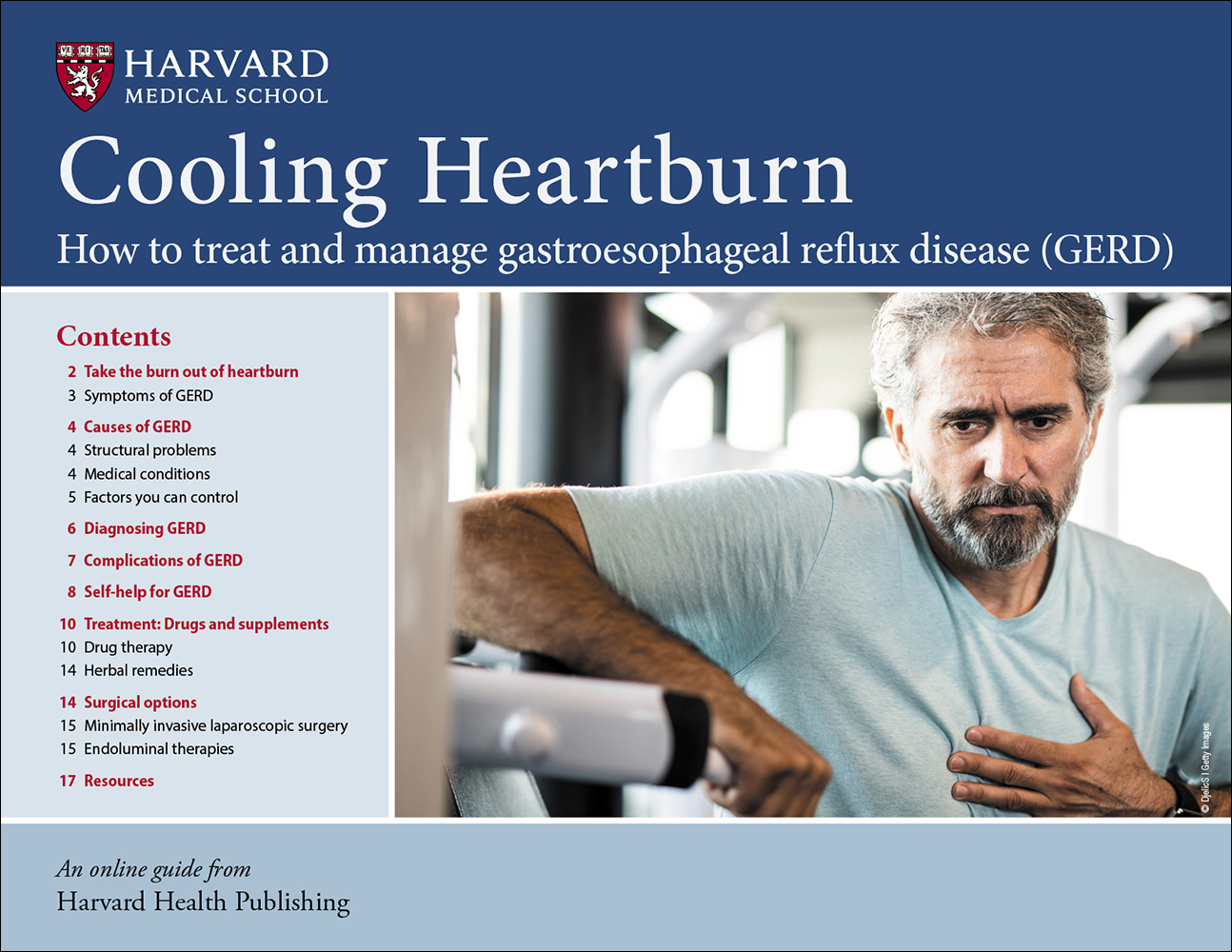What to eat when you have chronic heartburn
Avoid spicy foods, and keep some dazzle in your diet with low-fat sauces and fresh herbs.

The fiery feeling of heartburn is the last way you want to remember a great meal. But when your doctor says you have chronic heartburn caused by gastroesophageal reflux disease (see "What is GERD?"), you may worry that a bland and disappointing menu is in your future. But the foods that trigger your heartburn may or may not be on the usual lists. That's why keeping a journal to determine which foods cause symptoms helps.
Common culprits
Some foods and ingredients may intensify heartburn, such as spicy foods, citrus, tomato sauces, and vinegar.
Fatty and fried foods linger longer in the stomach, making it more likely that stomach acid leaks back up into the esophagus.
Other common heartburn triggers include chocolate, caffeine, onions, peppermint, carbonated drinks, and alcohol.
What's for dinner?
You can still enjoy lean meats, fish, poultry, vegetables, legumes, fruits, and whole grains. The trick is making them flavorful. If spices bother you, try using only small amounts, and be mindful of blends that contain cayenne or chili powder. Or use fresh herbs instead. Fresh herbs are less concentrated and may be less irritating. Instead use fresh parsley, oregano, and basil.
Another tip: roast your food. This makes vegetables sweeter. The natural sugars come out and caramelize. Carrots, sweet potatoes, cauliflower, broccoli, squash, and Brussels sprouts work well. Broiling, saut'ing, or grilling food also brings out intense flavor.
Eat vegetables raw. Tomato sauce may bother you, but a fresh tomato may not.
Use sauces but cut the fat. Blend low-fat yogurt with cucumber and basil, or saut' mushrooms in a little olive oil. Or make a pesto. Blend basil, pine nuts, Parmesan cheese, and a dash of olive oil or water. Use a tablespoon of it on food.
Breakfast and lunch
Avoid fatty meats like ham or bacon. Oatmeal is a great option. Throw in bananas, raisins, and maybe a hint of cinnamon. Other possibilities: low-fat yogurt with fruit or nuts, any kind of eggs, whole-grain toast, or a side of chilled whole grains like quinoa mixed with fruit or topped with a dollop of yogurt.
For lunch, think salads with protein such as chicken or beans. But maybe use a yogurt-based dressing, to avoid vinegar and citrus.
What is GERD?
|
Image: bhofack2/Getty Images
Disclaimer:
As a service to our readers, Harvard Health Publishing provides access to our library of archived content. Please note the date of last review or update on all articles.
No content on this site, regardless of date, should ever be used as a substitute for direct medical advice from your doctor or other qualified clinician.

















